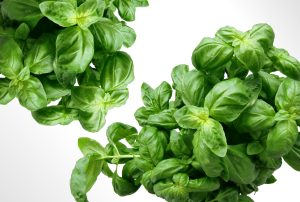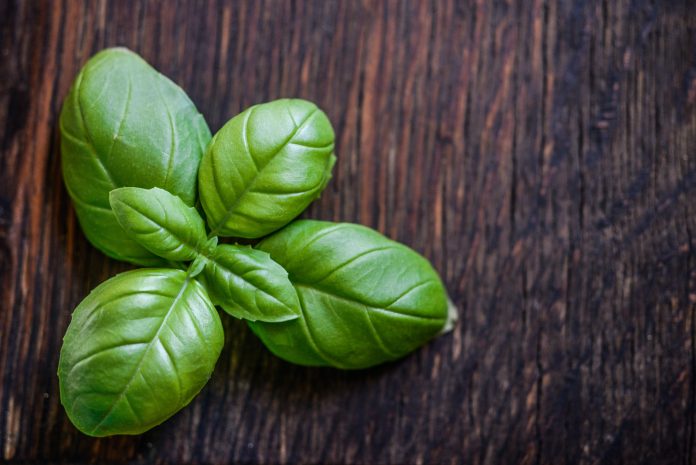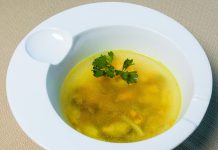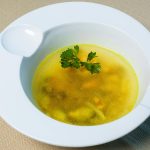Basil is a popular herb that is commonly used in cooking and is known for its distinct, sweet, and slightly spicy flavour. But did you know that basil also has an impressive metabolic rate? In this blog, we’ll explore what this means and how it contributes to the overall health benefits of basil.
First, let’s define what we mean by metabolic rate. Your metabolic rate refers to the number of calories your body burns while at rest. It is influenced by a variety of factors, including your age, gender, weight, and activity level. A higher metabolic rate means that your body burns more calories, even when you’re not actively exercising or moving around.
So, what does this have to do with basil? Well, research has shown that basil has a high metabolic rate-boosting effect. In fact, some studies have found that consuming basil can increase your metabolic rate by up to 20%. This means that adding basil to your meals can help your body burn more calories, even when you’re at rest.
But how does basil boost your metabolic rate? One of the main ways it does this is through its high levels of antioxidants. Basil is rich in antioxidants, including flavonoids and phenolic acids, which help to protect your cells from oxidative stress and inflammation. These antioxidants can also help to boost your metabolism by increasing the production of enzymes that are involved in energy metabolism.
In addition to its antioxidant content, basil also contains several other nutrients that can support a healthy metabolism. For example, it is a good source of vitamin K, which is essential for the proper functioning of enzymes involved in energy metabolism. Basil also contains small amounts of magnesium, which is necessary for the proper functioning of the enzymes that regulate energy production in the body.
 But the benefits of basil don’t stop there. In addition to boosting your metabolic rate, basil has a host of other health benefits as well. It is known to have anti-inflammatory and antimicrobial properties, which can help to support a healthy immune system. Basil is also rich in vitamin A, which is important for maintaining healthy skin and vision.
But the benefits of basil don’t stop there. In addition to boosting your metabolic rate, basil has a host of other health benefits as well. It is known to have anti-inflammatory and antimicrobial properties, which can help to support a healthy immune system. Basil is also rich in vitamin A, which is important for maintaining healthy skin and vision.
So, next time you’re looking to boost your metabolism and support your overall health, consider adding some basil to your meals. Whether you’re using fresh basil leaves in a salad or adding dried basil to your favourite pasta dish, this flavourful herb is a tasty and nutritious way to support a healthy metabolism. Just be sure to use it in moderation, as consuming large amounts of basil can lead to digestive issues.
In conclusion, basil is a delicious and nutritious herb that has a variety of health benefits, including the ability to boost your metabolic rate. By increasing your body’s calorie-burning capabilities, basil can help you maintain a healthy weight and support your overall health. So the next time you’re looking to add some flavour to your meals and support your metabolism, don’t forget to include this tasty herb in your diet.
Calculate
Women:
To calculate the Basal Metabolic Rate (BMR) for a woman, you can use the following formula:
BMR = 655 + (9.6 x weight in kilograms) + (1.8 x height in centimetres) – (4.7 x age in years)
This formula, also known as the Harris-Benedict equation, is a widely used method for estimating BMR. It is based on the assumption that the energy required to maintain basic bodily functions (such as breathing and circulation) is related to a person’s weight, height, and age.
Here’s an example of how to use this formula to calculate the BMR for a 30-year-old woman who weighs 70 kilograms and is 160 centimetres tall:
BMR = 655 + (9.6 x 70) + (1.8 x 160) – (4.7 x 30)
BMR = 655 + (678) + (288) – (141)
BMR = 1490 calories/day
Keep in mind that this is just an estimate of your BMR, and it may not be completely accurate for everyone. There are other factors that can affect your BMR, such as your body composition, hormone levels, and level of physical activity. Additionally, this formula is specifically designed for women, and there are separate formulas for men. If you want a more accurate estimate of your BMR, it’s best to consult with a healthcare professional.
Men:
To calculate the Basal Metabolic Rate (BMR) for a man, you can use the following formula:
BMR = 66 + (13.7 x weight in kilograms) + (5 x height in centimetres) – (6.8 x age in years)
This formula, also known as the Harris-Benedict equation, is a widely used method for estimating BMR. It is based on the assumption that the energy required to maintain basic bodily functions (such as breathing and circulation) is related to a person’s weight, height, and age.
Here’s an example of how to use this formula to calculate the BMR for a 40-year-old man who weighs 80 kilograms and is 180 centimetres tall:
BMR = 66 + (13.7 x 80) + (5 x 180) – (6.8 x 40)
BMR = 66 + (1096) + (900) – (272)
BMR = 1790 calories/day
Keep in mind that this is just an estimate of your BMR, and it may not be completely accurate for everyone. There are other factors that can affect your BMR, such as your body composition, hormone levels, and level of physical activity. Additionally, this formula is specifically designed for men, and there are separate formulas for women. If you want a more accurate estimate of your BMR, it’s best to consult with a healthcare professional.









